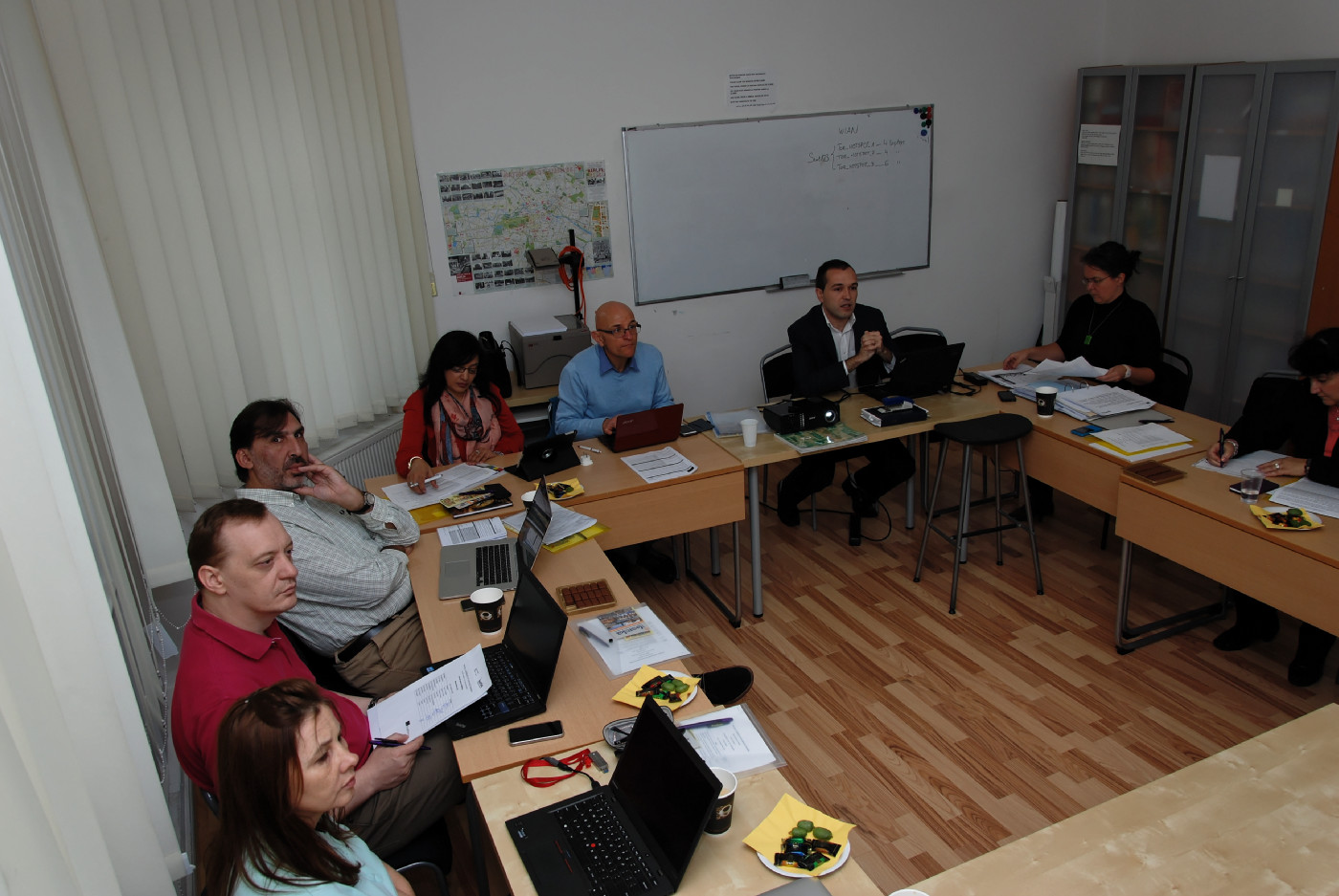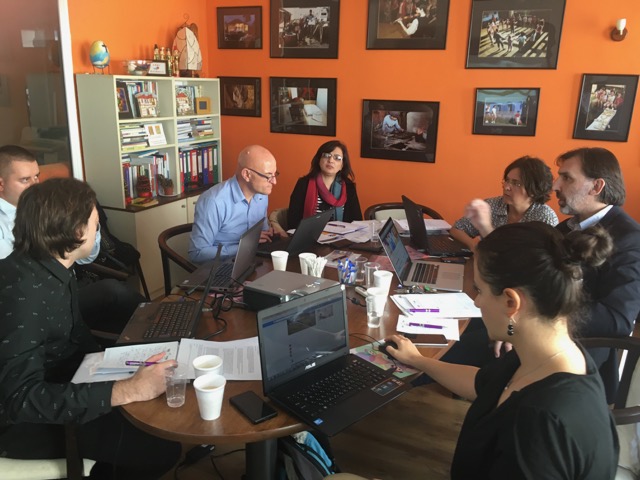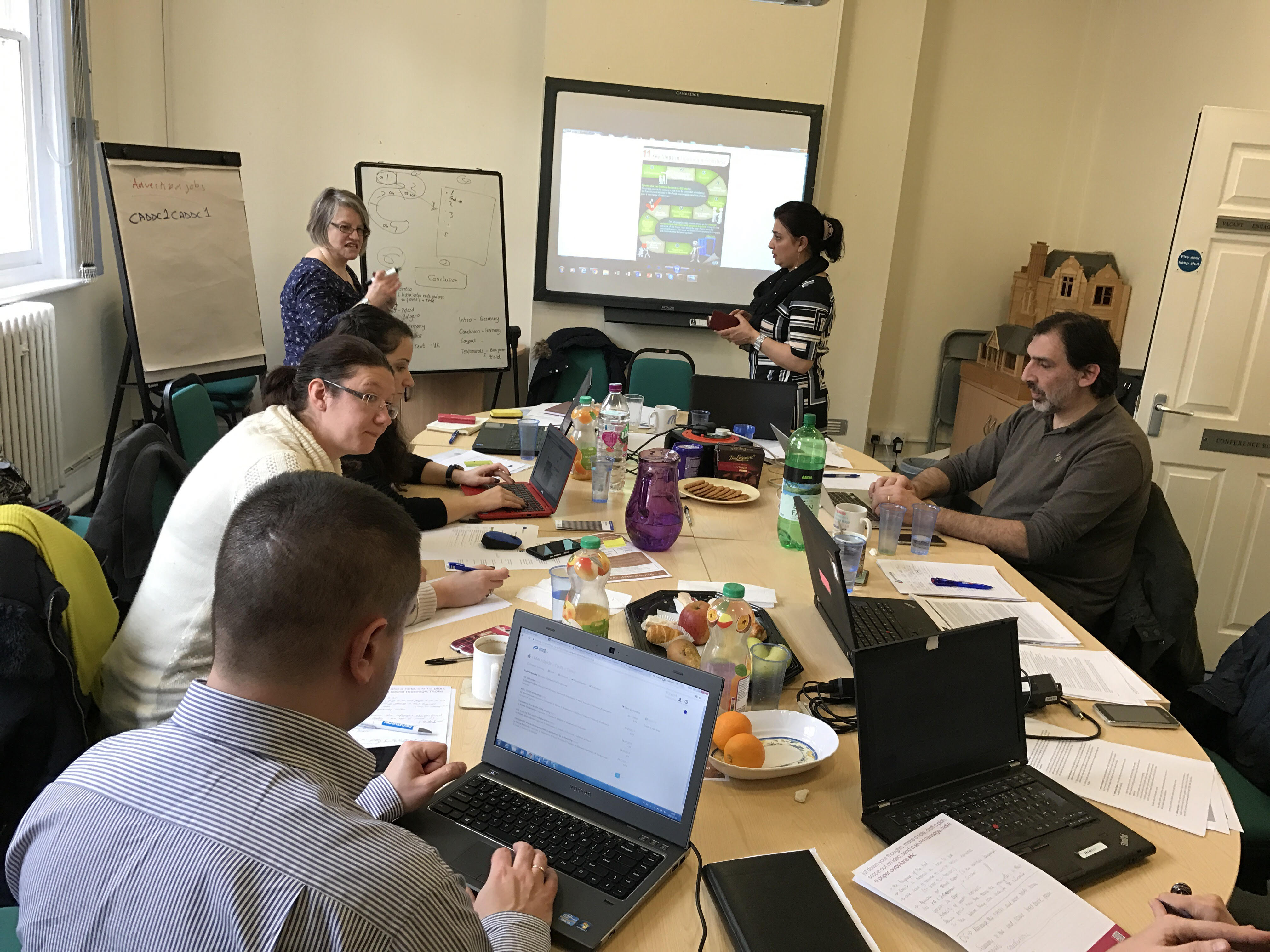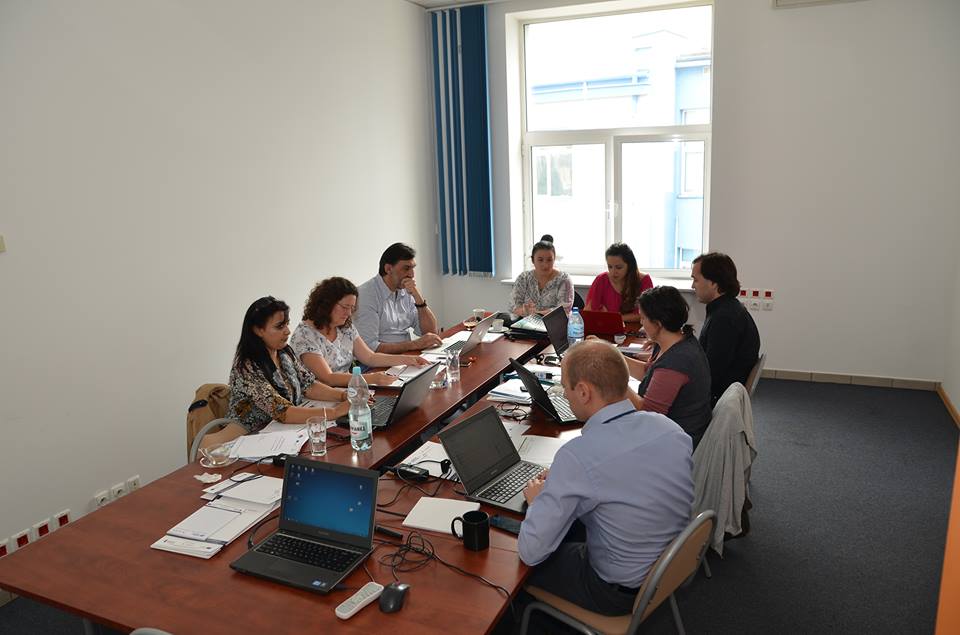Mall Guide

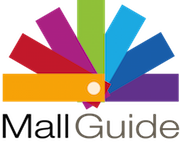
2015-1-DE02-KA204-002384
Click here to go to the project website
Rationale
Nowadays we all recognise that there is no specific way of learning, but rather there are different types of learners and teaching methods. Consequently, trainers need to adapt the curricula to these different settings. Learning activities are no longer only related to the traditional face-to-face classroom training, and trainers should accept that learning is a continuous process. It goes through many stages and can take place in different ways as long as they are relevant to the trainers’ abilities and the learners’ needs.
Technology is changing the way our society works. It offers us new opportunities and gives us access to sources we could have never imagined before. Unfortunately, our education system is not flexible enough to apply all these free opportunities. In most of the cases it is very hard for trainers to adapt their teaching plans to their learners’ needs. Many trainers find they do not have the necessary skills or time to adapt material to different methods of learning.
This project aims to solve these problems by creating a reference guide for language trainers that will help them to acquire or improve their ICT skills. The guidebook will show language trainers in a simple and understandable way how to effectively apply modern technology in their training thus providing a more diverse range of learning options.
Results
The MALL Guidebook for Language Trainers will consist of:
- An online Catalogue compiling the most relevant digital learning tools in partners’ countries
- A didactical and a technical report of the tools in the online catalogue
- 5 examples on how to effectively use the tools for language training
- Based on the results of the first testing partners will transfer/develop 5 new tools for language teaching
- An online guidebook made up of all aforementioned results and a new section for links with interesting practical information for trainers.
Although the project is targeted mainly at Second Language Acquisition (SLA) adult education trainers, its results may also be used by other language teachers and trainers, language learners and education institutions. Whilst the project will create/ transfer specific language training tools, its main goal is to convince language trainers to use new and innovative teaching methods which are adapted to the needs of the learners and the different teaching situations.
As a result of the project, trainers will acquire new skills for creating more flexible training strategies based on the usage of digital learning tools. This will be a valuable addition to their skill set and enhance options for career development.
Kick-off partner meeting
The first partner meeting under the project took place on the 15-th and 16-th of October 2015 in Berlin, Germany. Members of all partner organizations participated in the meeting. During it partners were introduced to the general concept, aims and the results that are going to be produced within the project. The participants in the meeting discussed the development of the intellectual outputs, especially the first three of them. The working plans for the preparation of those outputs were defined and partners distributed their specific tasks and responsibilities. It was decided that the next partner meeting will be held on the 13-th and 14-th of April 2016.
Online Catalogue
The partnership has already developed the online catalogue which provides analysis and compilation of digital learning tools, such as e-learning, m-learning, computer assisted learning tools and OERs. The tools in the catalogue could be used by language trainers from all partner countries. The list with resources is translated to all languages of the partnership.
Second partner meeting
The second transnational meeting under the Mall Guide project took place on the 13th and 14th of April 2016 in Athens, Greece. Representatives of all partner organizations participated in the meeting. The final version of the online catalogue which contains the most relevant digital learning tools in each country was presented and discussed between partners. Partners also worked hard in order to clarify the issues related to the development of the didactical and technical analysis of the tools in the catalogue.

Didactical analysis
Partners are now finishing the didactical analysis of the tools in the online catalogue. This part of the work is led by iberika education group gGmbH, Center Runi and Dacorum CVS because of their extensive experience in the development of language courses. However, Danmar Computers and ACP are also involved in this outcome for counselling and feedback purposes. This analysis aims at the exploration of the efficiency of all previously discovered language learning tools and is directly targeted to SLA trainers.
Technical analysis
The technical analysis of the learning tools is being performed in parallel with the didactical one. It is being conducted mainly by ACP and Danmar Computers who possess the necessary technical expertise and skills. However, the rest of the partners also contribute to the accomplishment of this task, because there are cultural and country-specific issues that could be solved only with the participation of all partner institutions. This analysis focus on the technical prerequisites needed for the successful implementation of MALL tools by language trainers.
Third partner meeting
On 28th and 29th of September 2016 in Sofia, Bulgaria was held the Third transnational MALL Guide meeting. The event was attended by participants from all partner organizations. The key topics that were discussed were the development of the project intellectual outputs and planning the future project activities. The first part of the meeting was dedicated to reflections and discussions on the quality of the online catalogue and the methodological and technical analyses of the 100 didactical tools. During the second part of the meeting were planned the future project activities – the development of 5 new MALL tools and the organization and reporting of the first round of Multiplier events.
5 Examples for Implementation of the Tools in Class
Iberika education group gGmbH (Germany) was leading this activity but all partners actively contributed to the preparation of the Toolbox for language trainers. Based on the results of the technical and methodological analyses of the tools the partnership developed an Online Toolbox containing practical guidelines and lesson plans for language trainers which show the latter how they can apply 5 online tools in real class situations with the learners. Each partner tested the tool that they have selected with their target groups and the feedback from the trainers and learners was also incorporated in the Online Toolbox. The Online Toolbox is available in all partner languages here:
http://mall-guide.eu/toolbox-for-sla-trainers/
New developments of MALL tools for SLA teaching
The next result of the project was the preparation of 5 new or adapted online language tools that could be used by language trainers. ACP was leading the work on this outcome but each partner was responsible for the development of one online tool. Partners created a Guidebook where they described the process of development of each tool. This Guidebook aims at supporting language trainers in the process of preparation of their own online tools and also provides them with instructions on how to successfully implement the tools in their work. The 5 newly developed tools could be found here:
http://www.mall-guide.eu/new-developments-of-mall-applications-for-sla-teaching/
Fourth transnational meeting
The fourth partner meeting under the project was organized on the 16 th and 17 th of February 2017 in Hemel Hempstead, United Kingdom. Members of all partner institutions took part in the meeting. The 5 examples for implementations of tools and the 5 newly developed tools were discussed in detail among the partners as they put the focus on the encountered difficulties and on the quality of the developed tools. Danmar Computers presented partners to their working plan about the preparation of the Final Mall Guidebook and determined the partners‘ responsibilities and the deadlines for its preparation. Evaluation and dissemination activities were also reviewed together with all partners.
The Final MALL Guidebook
At the moment partners are finalizing the preparation of the Final MALL Guidebook. Danmar Computers is in charge of its development but each partner contributed by writing different chapters from the Guidebook. The main aim of this outcome is to guide SLA trainers on the selection, creation and application of MALL tools in their teaching. In order to do this partners summarized the main results and methodologies from all intellectual outputs and also included in the Guidebook links to websites with OER and training opportunities for language trainers. The Guidebook will be translated to all partner languages.
Final partner meeting
The final partner meeting was organized on 3 rd and 4 th of July 2017 in Rzeszow, Poland. Representatives of all partner organizations participated in the event. Partners discussed the progress with the preparation of the most important project result: the Final MALL Guidebook. Also the final round of Multiplier Events was talked over as the project coordinator provided partners with instructions on their logistics and content. The financial part and, especially, the final report of the project was considered as iberika informed partners what documents they will need for ist submission.
Multiplier Events and Workshops
The main objective of these events is to disseminate the aims and expected goals of the project among stakeholders - education providers, trainer associations, language trainers and learners. Each project partner will use this event to present the results achieved at national and international level and most importantly - will offer the participants the possibility of testing them during the workshops. The main aim of the event is to present the project to interested parties and to encourage SLA trainers and learners to implement digital tools in the learning process.
In some partner countries the Final Multiplier Event should be organized by the end of August 2017. Other partners have already held the final events and received tons of positive feedback about the project results. Each event is half day long and opened for public participation. For more information and registration for the events, please, write to the project partner in your country.
What do learners think about the tools that we discovered?
•“I think it was a very useful tool. Interactive way of learning is very helpful.”
•“I think it is positive because it is easily available. Also can access from home and we don’t waste paper either. “
•“Easy to access, clear and no negative aspects.”
•“It is free and professional. “
•“I do recommend on-line resources, especially if you are studying on your own.”
•“I really enjoyed the class.”
•“Of course, I think that my English is better at the moment.”
Those are some excerpts from the questionnaires which were completed by learners from the United Kingdom after participating in the testing phase.
Partners
Coordinator: Iberika Education Group gGmbH (Germany)
Danmar Computers (Poland)
Center RUNI (Bulgaria)
Active Citizens Partnership (Greece)
Dacorum CVS (The United Kingdom)
Project duration: 1-st of September 2015- 1-st of September 2017
Financing programme: Erasmus +, Key Action 2: Strategic Partnerships for adult education
Follow the project news on its website and Facebook page:
Website: http://www.mall-guide.eu/
Facebook: https://www.facebook.com/MallGuideProject?fref=ts



